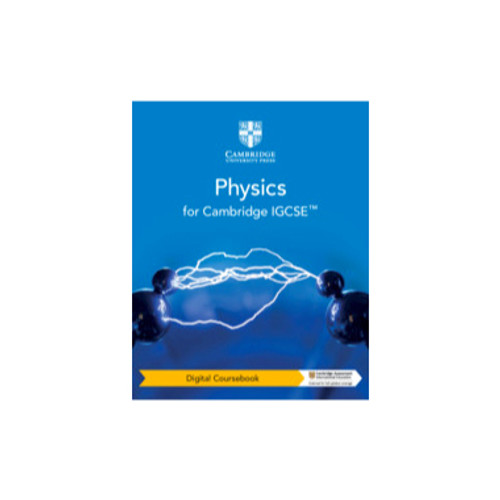Cambridge IGCSE™ Chemistry Digital Coursebook (2 Years)
Author/s: Richard Harwood, Ian Lodge, Chris Millington
This digital coursebook has been developed from extensive research through lesson observations, interviews and work with our research community (the Cambridge Panel) to meet specific needs.
Activities and exercises develop students’ essential skills, including practical work. English as a second language learners are supported with command terms, accessible language and glossary definitions.
Exam-style questions build student confidence. Projects provide opportunities for assessment for learning, cross-curricular learning and developing skills for life.
There are multiple opportunities to engage in active learning, such as discussions and debates.
In each chapter students are given the chance to reflect on their work, helping them become responsible, independent learners, thinking not just ‘what’ they did well or not well, but ‘why’ and ‘how’ they came up with the answer they did, and how they might improve this in future.
Regular self-assessment and peer-assessment features, give students the opportunity to assess their own work or the work of their peers in relation to the learning objectives and learn from one another.
Answers for all questions and exercises can be found online at www.cambridge.org/go.
Features:
-
We are working towards endorsement of these titles by Cambridge Assessment International Education
-
Develops student scientific enquiry skills such as making predictions, recording observations, handling data, interpreting data, evaluating methods
-
Project feature at the end of each chapter supports assessment for learning, cross-curricular learning, skills for life and differentiation
-
End of chapter exam-style questions build student confidence
-
Answers for all questions and exercises can be found online at www.cambridge.org/go
-
Practical activity features build student understanding so they can put theory into a practical context
-
Features such as ‘Getting Started’, summaries and reflection boxes provide opportunities for students to practise their reflection skills
-
‘Science in Context’ features with open-ended discussion questions enable students to practise their English skills, interpret ideas in a real-world context, and debate concepts with other learners
-
Varied opportunities for learners to engage in active learning such as scripting a podcast or voiceover for a video, to creative work such as a comic strip poster, or oral work such as a debate or speech!
-
Activities build in complexity to support students’ learning journeys, and worked examples help them whenever they need to use an equation. All our resources are written in accessible language with features to support our English as a second language learners.
Contents:
- 1. States of matter
- 2. Atomic bonding
- 3. Chemical bonding
- 4. Chemical formulae and equations
- 5. Chemical calculations
- 6.Electrochemistry
- 7. Chemical energetics
- 8. Rates of reaction
- 9. Reversible reactions and equilibrium
- 10. Redox reactions
- 11. Acids and bases
- 12. Preparation of salts
- 13. The Periodic Table
- 14. Metallic elements and alloys
- 15. Reactivity of metals
- 16. Extraction and corrosion of metals
- 17. Chemistry of our environment
- 18. Introduction to organic chemistry
- 19. Reactions of organic compounds
- 20. Petrochemicals and polymers
- 21. Experimental design and separation techniques
- 22. Chemical Analysis.






